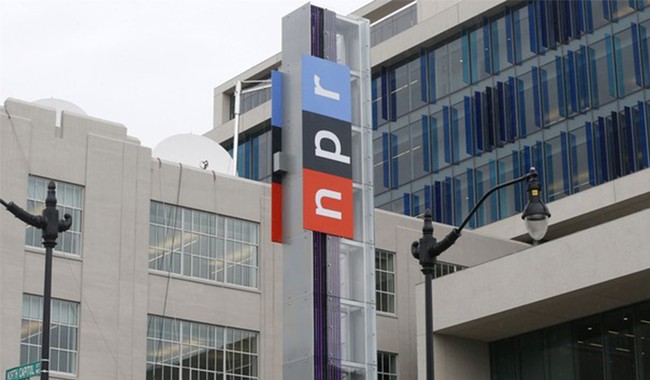


Well, you knew this HAD to happen.
After President Donald Trump signed an Executive Order banning the (federal) funding of NPR and PBS stations, the rubber was going to meet the road.
President Donald Trump has signed an executive order to cut federal funding for NPR and PBS, two U.S. broadcasters that rely partially on government financial support, his administration's latest effort to sanction institutions it views as opposed to his political agenda.
The order, announced late on Thursday, instructs the Corporation for Public Broadcasting, which distributes funding to the PBS television and NPR radio networks, to "cease direct funding" them.
NPR said it would aggressively challenge the executive order and PBS said it was exploring its options. Congress allocated $535 million for the CPB for fiscal year 2025. Most of the funding for the PBS and NPR comes from other sources.
The White House said in a statement on Friday that PBS and NPR receive tens of millions of dollars in taxpayer funds each year to spread "radical, woke propaganda disguised as 'news'."
The statement cited examples of what it called "trash that has passed for 'news' at NPR and PBS," including NPR saying the Declaration of Independence was a document with "flaws and deeply ingrained hypocrisies," and apologizing for describing undocumented migrants as "illegal."
Trump fired the opening shot, and here is the response.
National Public Radio and three Colorado public radio stations are suing the Trump administration over the president's executive order to cut federal funding for public broadcasting, NPR said on Tuesday.
U.S. President Donald Trump's order against NPR and fellow public broadcaster PBS earlier this month barring the use of Congressionally appropriated funds violated the First Amendment, it said.
Not everyone agrees, oddly enough, with El Presidente 45 & 47.
Patricia Harrison, CPB's president and CEO, said in a statement on Friday that the president lacked the authority to withdraw the funding.
"Congress directly authorized and funded CPB to be a private nonprofit corporation wholly independent of the federal government," the statement said.
She might (MIGHT) have a point here.
RELATED: ‘D’ Is for Defund: Trump Signs Executive Order to Halt Taxpayer Funding of PBS, NPR
In a Public Broadcasting Paradox, PBS, NPR Demand to Be Both Independent and Government-Subsidized
The only part of this dilemma where public radio and TV might have a shot is with the current budget. Trump is changing the rulebook after the budget has been cleared and set up. This, of course, would make anybody who is doing budgeting depending on certain funds a massive headache.
If, however, in the next budget signed into law, Congress determines that no money is to be set aside for NPR or PBS, there will be complaining and griping, but essentially, what can they do other than raise a stink afterwards?
Trump's order also aims to suspend indirect funding for NPR and PBS by asking the CPB to ensure "that licensees and permittees of public radio and television stations, as well as any other recipients of CPB funds, do not use federal funds for NPR and PBS."
The largest portion of PBS's budget comes from station dues. Individual donations typically go to stations, not to PBS directly, though PBS generates some money from private grants.
This cat fight has been long in the making and has been discussed for as long as I have been paying attention to politics. We will finally see if, through executive order, the president can change the budget for funding for national public TV and National Public Radio, or through the regular budget process, if Congress and he agree to defund it.
Either way, buckle up your seats, the ride gets bumpy from here.
Editor’s Note: Every single day, here at RedState, we will stand up and FIGHT, FIGHT, FIGHT against the radical left and deliver the conservative reporting our readers deserve.
Help us continue to tell the truth about the Trump administration and its major wins. Join RedState VIP and use promo code FIGHT to get 60% off your membership.
